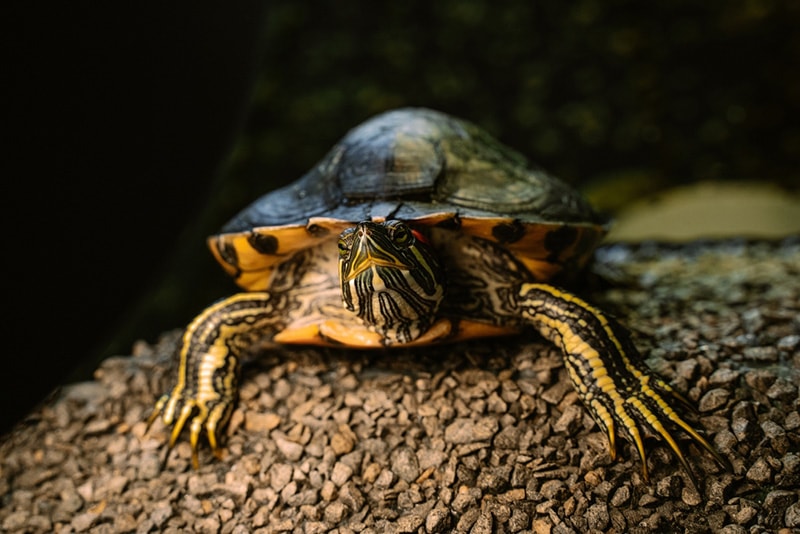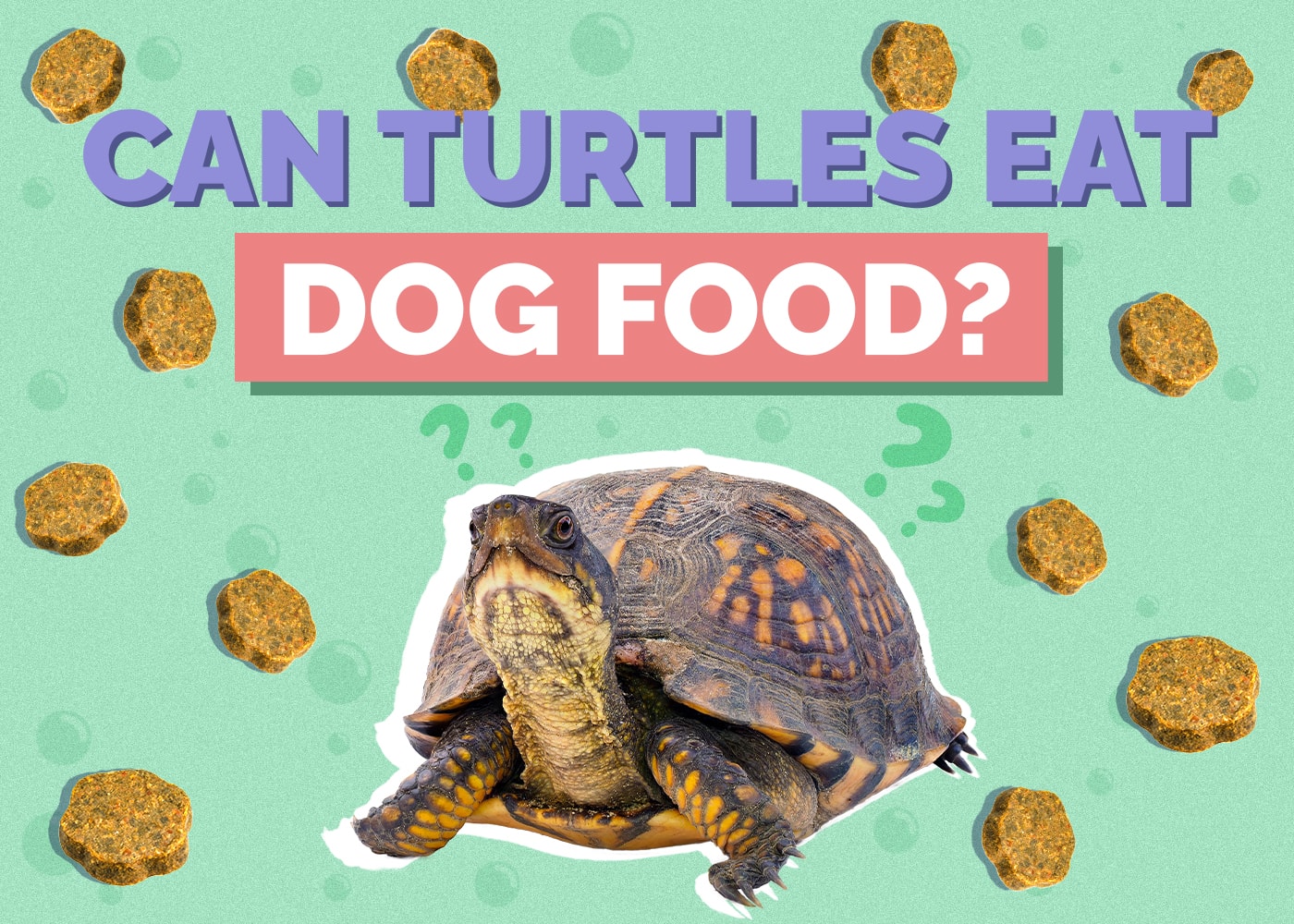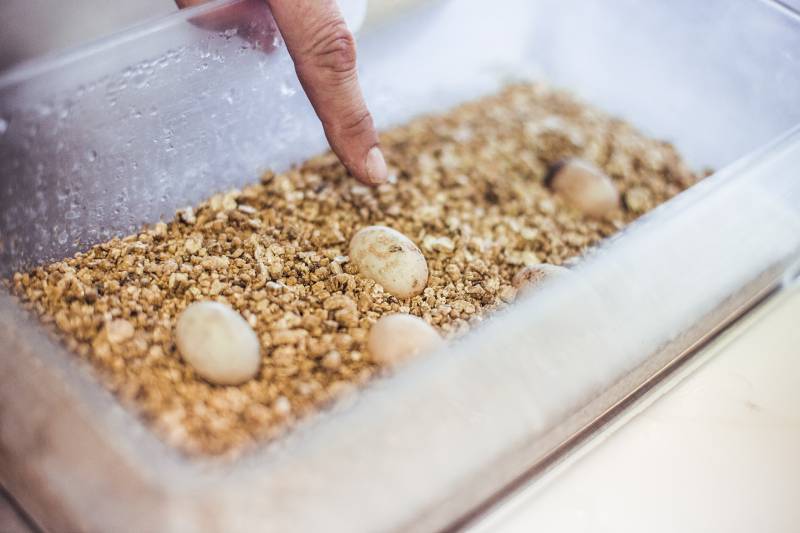Can Tortoises Eat Zucchini (Courgette)? Nutrition Facts and FAQ
Updated on

Have you ever caught yourself staring at the zucchini in your kitchen, wondering whether your tortoise buddy could safely munch on it? It’s time to rest those swirling thoughts. Tortoises can indeed dine on zucchini, and there’s a good chance they’ll appreciate the refreshing crunch!
That being said, as with any aspect of caring for our scaly pals, the zucchini tale has a few more layers to explore. So, let’s delve into the intricacies of a tortoise’s relationship with this versatile veggie.
Zucchini: A Thumbs Up for Tortoises
Zucchini gets the green light in the world of tortoise nutrition, and for good reason. This vegetable, low in calories but brimming with key nutrients, is a smart addition to your tortoise’s eating plan. The high water content provides an extra hydration boost, particularly beneficial during warm summer days. That being said, zucchini, like any food, should be a part of a balanced diet and not the sole focus. It’s essential that your tortoise enjoys a diverse diet for overall health.
One of the reasons zucchini finds favor among tortoise owners is its soft texture, which makes it a breeze for our shell-covered buddies to nibble on. In tortoise land, texture plays a critical role in what makes the cut on the dinner plate.
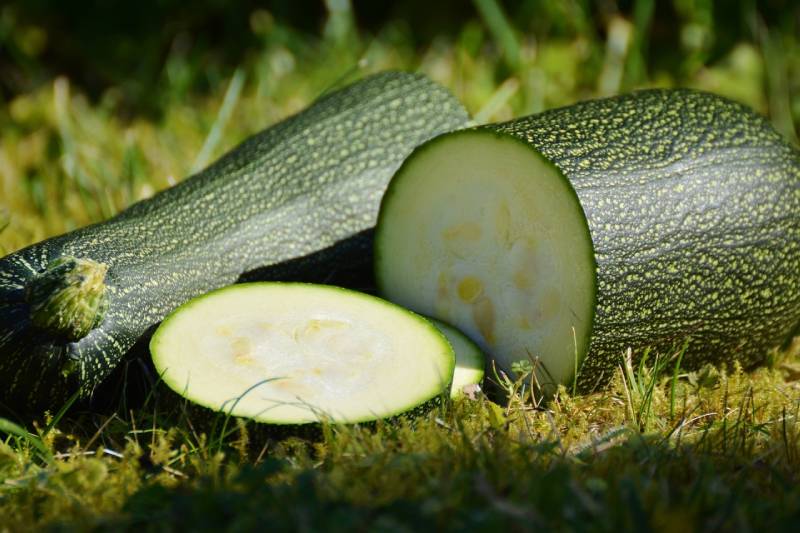
A Deep Dive into Zucchini’s Nutrient Composition
Here’s a snapshot of what zucchini brings to your tortoise’s nutritional table:
- Calories: With just 17 calories per 100 grams, zucchini’s low-calorie count supports healthy weight management.
- Water: With 95% water content, zucchini helps keep your tortoise hydrated.
- Fiber: The fiber in zucchini promotes a smooth-functioning digestive system.
- Vitamin A: Supports healthy skin, vision, and overall growth.
- Vitamin C: Acts as an antioxidant to protect your tortoise’s cells from damage.
- Potassium: Aids nerve function and muscle control.
Serving Zucchini to Your Tortoise: A Quick How-To
Now that we’re clear that zucchini is a friend, not foe, let’s look at how to feed it. Start by thoroughly washing the zucchini to eliminate any pesticide or chemical residues. If you have access to organic zucchini, even better.
Serving zucchini raw is the top ticket to maintaining its nutrient-rich profile. Chop it into manageable, small pieces suitable for your tortoise’s bite. Another option? Shred it and toss it in with a mix of other veggies for a colorful, nutrient-dense tortoise feast.
Suppose your tortoise appears reluctant to take a bite of zucchini initially. In that case, don’t lose heart. Humans aren’t the only ones with specific food tastes, and tortoises, too, exhibit personal likes and dislikes. They might need a bit of time to warm up to this new addition to their dietary spread.

Balanced Diet: The Golden Rule
Zucchini, while nutritious, is just one piece of the dietary puzzle. To keep your tortoise’s meals exciting and nutritionally rich, mix up their plate with an array of fruits and vegetables. Make sure leafy greens, like romaine lettuce, kale, and collard greens, are regular features on the menu. Don’t shy away from adding other veggies, such as bell peppers, cucumbers, and carrots, for a varied palette. And for that occasional surprise, toss in fruits like apples and strawberries to delight your shelled friend.
So, while zucchini gets a thumbs up, remember that it shouldn’t be the only thing on your tortoise’s plate.
Common Questions about Tortoises and Zucchini
Can tortoises eat zucchini seeds?
Indeed, zucchini seeds are safe for tortoises. They’re small and soft, so they don’t pose any choking risks. But remember, it’s all about balance.
Can tortoises eat cooked zucchini?
While not harmful, per se, it’s better to serve zucchini raw. Cooking might deplete some of the nutrients, and most tortoises prefer their zucchini fresh and crunchy.
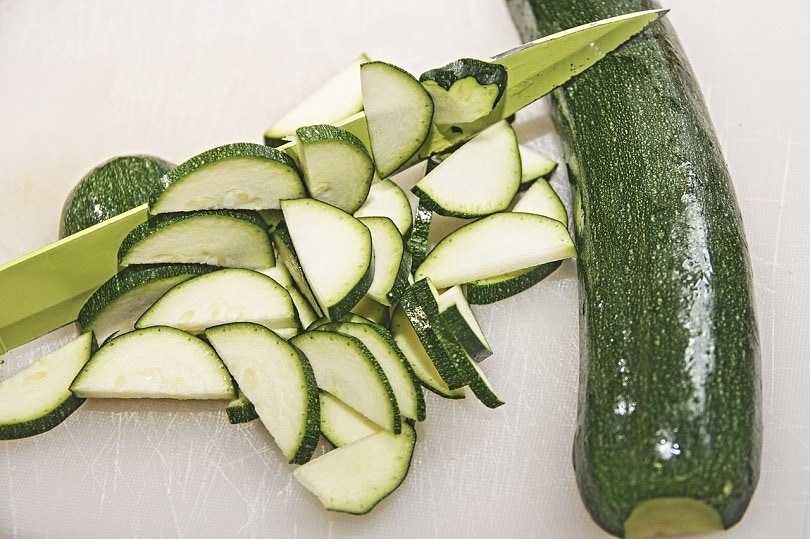
How often should I feed zucchini to my tortoise?
There’s no hard and fast rule here, but think of zucchini as an element of a varied diet rather than a daily staple. Zucchini can be offered once or twice a week, alongside other veggies and fruits.
It’s interesting to wonder whether a tortoise, left to its devices in the wild, would stumble upon a zucchini. Tortoises in the wild have a knack for foraging a variety of plants, weeds, flowers, and sometimes fruits available in their natural habitats. They’re primarily herbivores and feed on what their environment offers.
However, encountering a wild zucchini would be quite a stroke of luck for a tortoise.
Zucchini, as we know it, is a product of human cultivation, initially sprouting up in the Americas. It’s not a usual sight in the natural habitats where most tortoise species roam. Yet, if a tortoise were to encounter a stray zucchini in the wild, its curiosity might lead it to have a nibble. However, we must note that a tortoise’s diet in the wild is primarily influenced by the indigenous flora around it.
Final Thoughts: Zucchini and Your Tortoise
In conclusion, zucchini is a welcome guest in your tortoise’s dietary plan. Its nutrient-rich profile and hydrating properties make it an excellent addition to their varied veggie menu. The simple rule to remember, though, is balance. Your tortoise’s diet should feature an array of vegetables, with zucchini being just one part of this colorful mosaic.
With the knowledge you now possess, you can add a dash of zucchini to your tortoise’s plate with confidence. Just remember to watch them as they explore this new food. After all, observing our shelled companions is half the joy of being a tortoise parent! Happy feeding!
Featured Image Credit: outsideclick, Pixabay



